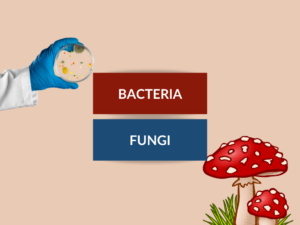Prebiotics vs Probiotics: Understanding the Key Differences
In the pursuit of a healthy gut, you may have come across the terms “prebiotics” and “probiotics.” Both these words refer to substances that offer potential health benefits, particularly to your digestive system. While they sound similar, prebiotics and probiotics are actually quite different in terms of their composition, functionality, and benefits they provide. This article aims to shed light on the dissimilarities between prebiotics and probiotics, giving you a clear understanding of these two important components for gut health.
What are Prebiotics?
Prebiotics are non-digestible food components that provide nourishment for the beneficial bacteria residing in your gut. Although your body can’t break them down, prebiotics serve as a source of energy for these “good” bacteria. By promoting the growth and activity of these beneficial microbes, prebiotics help maintain a healthy balance of gut bacteria, thereby supporting overall digestive health.
Examples of Prebiotics:
- Inulin
- Fructooligosaccharides (FOS)
- Galactooligosaccharides (GOS)
- Resistant starch
- Arabinogalactans
Uses of Prebiotics:
Prebiotics offer several potential health benefits, including:
- Improved digestion and nutrient absorption
- Enhanced immune function
- Reduced risk of certain diseases
- Lowered cholesterol levels
- Improved bowel regularity
What are Probiotics?
Probiotics, on the other hand, are live microorganisms that, when consumed in adequate amounts, confer a health benefit to the host. Probiotics are commonly known as “good” or beneficial bacteria that naturally reside in your gut. These helpful microorganisms promote a healthy gut environment by inhibiting the growth of harmful bacteria and supporting the balance of your gut microbiota.
Examples of Probiotics:
- Lactobacillus acidophilus
- Bifidobacterium lactis
- Streptococcus thermophilus
- Saccharomyces boulardii
- Escherichia coli Nissle 1917
Uses of Probiotics:
Probiotics offer a range of potential health benefits, including:
- Improved digestion and nutrient absorption
- Enhanced immune function
- Reduced inflammation
- Alleviation of digestive disorders such as irritable bowel syndrome (IBS)
- Prevention and treatment of urinary tract infections
Differences Between Prebiotics and Probiotics
| Difference Area | Prebiotics | Probiotics |
|---|---|---|
| Composition | Non-digestible food components | Live microorganisms |
| Function | Nourish and promote growth of beneficial gut bacteria | Inhibit growth of harmful bacteria and restore microbial balance |
| Source | Found naturally in certain foods | Found in fermented foods and supplements |
| Survival | Resistant to digestion and reach the colon intact | May not survive harsh stomach acid and bile |
| Colonization | Do not colonize the gut but stimulate the growth of beneficial bacteria | May transiently colonize the gut and exert their effects |
| Health Benefits | Improved digestion, enhanced immune function, reduced disease risk | Improved digestion, enhanced immune function, reduced inflammation |
| Safety | Considered safe, although excessive intake may cause gastrointestinal discomfort | Generally safe, but may cause adverse effects in certain individuals |
| Regulation | Not regulated as strictly as probiotics | Regulated as dietary supplements or functional foods by health authorities |
| Storage | Stable at room temperature | Require refrigeration to maintain efficacy |
| Applications | Food industry, dietary supplements | Food industry, dietary supplements, clinical settings |
Conclusion:
In summary, while prebiotics and probiotics both play crucial roles in supporting gut health, they differ in terms of composition, functionality, survival, colonization, and regulation. Prebiotics are non-digestible food components that nourish the beneficial bacteria in your gut, while probiotics are live microorganisms that inhibit harmful bacteria and restore microbial balance. Understanding these differences can help you choose the right approach to improve your digestive health.
People Also Ask:
- Q: Can I consume prebiotics and probiotics together?
- A: Absolutely! Consuming prebiotics and probiotics together can have a synergistic effect on your gut health. Prebiotics provide nourishment for the beneficial bacteria promoted by probiotics, enhancing their benefits.
- Q: Which foods contain prebiotics?
- A: Foods rich in prebiotics include onions, garlic, bananas, asparagus, oats, and legumes, among others.
- Q: Do probiotics have any side effects?
- A: While probiotics are generally safe, some individuals may experience mild side effects such as bloating, gas, or an upset stomach. If you have a compromised immune system or are critically ill, consult your healthcare provider before using probiotics.
- Q: Are probiotics suitable for everyone?
- A: Probiotics are generally safe for most individuals. However, certain medical conditions or taking specific medications may require caution or medical advice before starting probiotic supplementation. Consult your healthcare provider if you have any concerns.
- Q: Can I cook foods containing prebiotics without losing their benefits?
- A: Cooking prebiotic-rich foods may slightly reduce their prebiotic content. However, many prebiotics are heat-stable, so cooking them may still yield beneficial effects.


